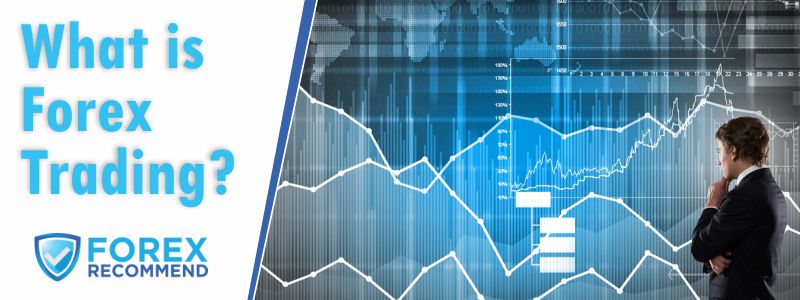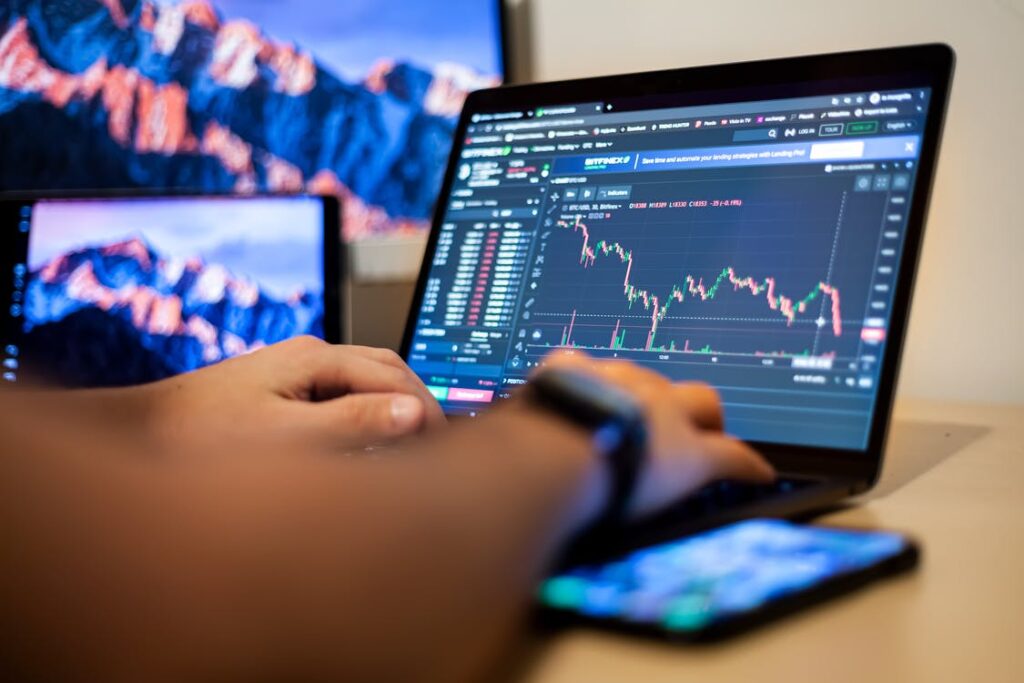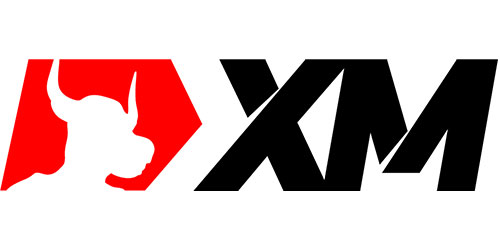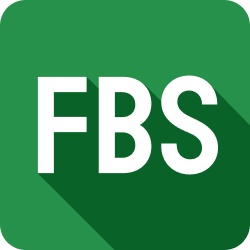
Forex is a mashup word that combines the terms foreign currency and exchange. Foreign exchange is the exchanging of one currency for another for several purposes, most frequently trade, trading, or tourism.
The foreign exchange market is a marketplace for currency trading. Currency is critical because it enables us to purchase goods and services both locally and internationally. Foreign currencies must be exchanged to carry out business and trade across the border.
Here is a comprehensive article about the details revolving around Forex Trading.
In this in-depth guide you’ll learn:
- Definition of Forex trading
- How to start Forex Trading
- Pros and Cons of Forex Trading
- How to trade forex for beginners
- Different types of Forex trading Strategies
- What is forex trading and how does it work?
- What is forex trading in simple terms?
- What is the best strategy for forex trading?
- Forex trading for beginners
- Mistakes to avoid in Forex trading
And lots more…
Let’s dive right in…
Top 10 Forex Brokers
Broker
Rating
Regulators
Min Deposit
Leverage
Website
Top 10 Forex Brokers
Broker
Rating
Min Deposit
Leverage
Definition of Forex Trading
In short, Forex trading refers to the act of buying/selling currencies either for use or speculative to earn profits on the changes in exchange rates between currencies.
In terms of how the foreign exchange market works, in contrast to stocks and commodities, forex trading occurs directly between two parties in an over-the-counter (OTC) market.

History of Forex Trading
The history of forex goes back centuries, starting in prehistoric times. Money changers (individuals who assist others in exchanging money while simultaneously collecting a commission or charge) were in the Holy Land throughout the Talmudic era (Biblical times).
These people (sometimes referred to as “kollybits”) instead used city booths and, during feast periods, the Temple's Court of the Gentiles. In more recent ancient times, money changers were also known as silversmiths and/or goldsmiths.
Throughout the fourth century AD, the Byzantine authority maintained a monopoly on monetary exchange. The papyrus PCZ I 59021 (about 259/8 BC) demonstrates the occurrences of monetary transactions in Ancient Egypt.
Currency and exchange were critical components of ancient trade, enabling people to purchase and sell goods such as food, ceramics, and raw resources.
If a Greek currency contained more gold than an Egyptian coin due to its size or composition, a trader might exchange fewer Greek gold coins for more Egyptian coins or tangible commodities. Therefore, at some time in their history, most of today's international currencies were pegged to a certain quantity of a recognized standard such as silver or gold.
Following the breakdown of the Bretton Woods agreement in 1971, other currencies were permitted to float frictionless against one another. Individual currency values fluctuate in response to demand and circulation and are tracked by foreign exchange trading services.
As a rule, commercial and investment banks do most of the currency trading on behalf of the client. There are also many speculative opportunities for experts and people who want to trade one currency against each other.
There are a lot of banks all over the world that works together to keep the forex market safe. London, New York, Sydney, and Tokyo are the four main hubs for trading currencies. Because there is not a central place where forex trading can be done, it can be done 24 hours a day.

Forex Market Types
| 𝗙𝗼𝗿𝗲𝘅 𝗠𝗮𝗿𝗸𝗲𝘁 𝗨𝗻𝗶𝗾𝘂𝗲 𝗧𝘆𝗽𝗲𝘀 | 𝗗𝗲𝘁𝗮𝗶𝗹𝘀 |
|---|---|
| 👉 Spot Market | The term “spot market” relates to the physical exchange that happens right away after a deal is done, either right away or in a short amount of time. |
| 👉 Forward Market | Participants in the Forward Market agree to buy or sell a certain amount of a certain currency at a certain price at a future date or set of future dates. |
| 👉 Futures Market | The Futures Market involves participants setting up an agreement where they will purchase or sell a security at a specified price at a predetermined date. One of the main differences between Forward contracts and Futures contracts is that the latter is legally binding. |

10 Steps to start Forex Trading for beginners
| 𝗦𝘁𝗲𝗽𝘀 | 𝗗𝗲𝘁𝗮𝗶𝗹𝘀 |
|---|---|
| 𝗦𝘁𝗲𝗽 𝟭: | 📌Learn everything you need to know about Forex: To trade forex effectively, you need an education on how it works, including transaction execution, active trading hours, and risk management. Numerous resources like websites and books are available for self-education, but experience is the best teacher. While major forex trading happens among financial institutions, individual traders can use forex CFDs or brokers due to limited financial capacity for large deals. |
| 𝗦𝘁𝗲𝗽 𝟮: | 📌Set up your own brokerage account: To begin trading currency pairs or forex CFDs, open a leveraged trading account with a broker. Demo accounts lack the experience of risking real money, so experts suggest creating a micro forex trading account or using a variable transaction size broker for small trades. This hands-on experience teaches you more than reading or using a demo account and provides a different perspective on your learning. |
| 𝗦𝘁𝗲𝗽 𝟯: | 📌Choose your currency pair: To begin, you will need to grasp the instrument you are trading. New traders have a habit of going in and trading anything that appears to be moving. |
| 𝗦𝘁𝗲𝗽 𝟰: | 📌Analyze the market: Your trading activities should be founded on research and analysis. Without these, you will be governed by emotion. Typically, this does not end well. |
| 𝗦𝘁𝗲𝗽 𝟱: | 📌Read the quote: There are always two prices or rates given for every currency pair. The first-rate given is the price at which the trader can sell the currency pair. |
| 𝗦𝘁𝗲𝗽 𝟲: | 📌Pick your position: A trader or investor holds a position when they buy something with a buy order, which shows that they want to be bullish, or they sell something short with a sell order, which shows that they want to be bearish. |
| 𝗦𝘁𝗲𝗽 𝟳: | 📌Develop your own strategy when it comes to trading: Developing a trading strategy is critical if you are new to the markets. |
| 𝗦𝘁𝗲𝗽 𝟴: | 📌Make sure to be on top of your numbers: When you begin trading, it is critical to verify your holdings after each day. |
| 𝗦𝘁𝗲𝗽 𝟵: | 📌Develop an emotional equilibrium: Forex trading for beginners is riddled with emotional difficulties and unresolved issues. Should you have hung on to your holding a little longer to earn a little more profit? How did you miss the information regarding poor gross domestic product statistics, which resulted in a fall in your portfolio's total value? |
| 𝗦𝘁𝗲𝗽 𝟭𝟬: | 📌Maintain discipline when it comes to closing out your open positions. |

Different types of Forex Trading strategies
A currency trading strategy is a method that successful traders can use to determine when to purchase or sell currencies. Developing a profitable currency trading strategy is a critical component of currency trading.
In general, multiple trading techniques have been developed by various sorts of traders to assist you in profiting from the market.
- Scalping
- Day trading
- Swing trading
- Position trading
| 📈 𝗧𝘆𝗽𝗲𝘀 | 📜 𝗗𝗲𝘀𝗰𝗿𝗶𝗽𝘁𝗶𝗼𝗻 𝗶𝗻 𝘀𝗵𝗼𝗿𝘁 |
|---|---|
| 📊 Scalping | Scalping is the shortest-term trading strategy. |
| 📊 Day trading | Day trading is defined as the act of initiating and closing a position in a particular market during a single session. While day trading is occasionally associated with negative connotations, it is a legal and approved method of dealing in the financial markets. |
| 📊 Swing trading | Swing traders tend to hold positions for longer periods than day traders. To catch short-term market swings, investors do not need to sit continually observing the graphs and their transactions throughout the day because positions are kept over time. |
| 📊 Position trading | Trading positions is a long-term technique. This trading method, unlike scalping and day trading, is primarily concerned with basic variables. |
✅ Scalping Information
The objective is to execute many rapid transactions with tiny profit margins but to allow profits to build over the day because of the volume of deals done during each trading session.
This trading method necessitates narrow spreads and liquid marketplaces. Because of the liquidity and large trading volume associated with key currency pairs, scalpers often trade just EURUSD, GBPUSD, and USDJPY.
Additionally, they trade only at the busiest moments of the trading day, during the overlap of trading sessions, when there is a higher volume of trading and frequently greater volatility.
Scalpers want the narrowest spreads possible simply because they enter and exit the market frequently, and paying a bigger spread reduces prospective gains.
The fast-paced trading atmosphere of attempting to scalp a few pips as frequently as possible during the trading day may be unpleasant for many traders and is quite a time demanding since you will be focusing on charts for several hours at a time. Many scalpers focus on one or two pairs at a time due to the intense nature of scalping.
✅ Day trading Information
A forex day trading strategy might be technical or fundamental. Several of the most frequent varieties are designed to profit from currency pair breakouts, trending markets, and range-bound markets.
The flexibility of leverage and a wide range of choices render the currency market a target-rich arena for day traders when compared to other markets.
Furthermore, one has the option of profiting from being short or long a currency pair. These three elements, when combined, successfully open the door to a plethora of distinct forex day trading techniques.
✅ Swing trading Information
Those who have other responsibilities (such as full-time employment or other professional responsibilities) and desire to trade in their free time may find this method highly appealing. Despite this, traders must take the time to analyze the financial markets to ensure that they remain updated with economic events and news.
Trend trading, counter-trend trading, momentum trading, and breakout trading are common trading methods used by swing traders (as well as certain day traders).
✅ Position trading Information
Minor market changes are not considered in this technique since they have little impact on the overall market picture.
To detect cyclical patterns, position traders are likely to study central bank monetary policies, political developments, and other fundamental variables. Over a year, skilled position traders may only open a few positions.
Profit objectives in these trades, on the other hand, would likely be in the hundreds of pips each transaction. Because their position might take weeks, months, or even years to play out, this trading approach is designed for more patient traders.

Details on how Forex Trading works
You sell one currency and purchase another when you conduct a forex deal. If the currency you purchase rises versus the currency you sell, you profit.
The practice of speculating on currency prices to generate a profit is known as forex trading. When a trader trades one currency for another, they are speculating whether the price of one currency will increase or decrease in respect to the value of the other.
Trade flows, economic, political, and geopolitical developments, all of which affect forex supply and demand, influence the value of a currency pair. There may be new opportunities for forex traders because of this everyday volatility.

12 Mistakes to avoid in Forex trading
- Keep trading if you keep losing
- Trading without a stop-loss and take profit
- Risking more than you can afford to lose
- Going all in to try and win back what you lost
- Anticipating the news
- Dealing with the wrong broker
- Trade only according to fundamental or economic data
- Having Unrealistic profit expectations
- Not researching the market
- Trading without a solid trading plan
- Not understanding leverage
- Not controlling emotions
| 𝗠𝗶𝘀𝘁𝗮𝗸𝗲𝘀 | 𝗘𝘅𝗽𝗹𝗮𝗻𝗮𝘁𝗶𝗼𝗻 |
|---|---|
| 🥉 Keep trading if you keep losing | Your win rate is how many trades you make that you win in percentage form. You can say that if you win 60 out of 100 trades, your win rate will be 60% of the time. A day trader should try to keep their win rate above 50%. |
| 🥉 Trading without a stop-loss and take profit | A stop-loss order is required for everyday trading in FX. If the price goes against you by the amount you specified as your stop-loss, you could get out of the trade. |
| 🥉 Risking more than you can afford to lose | Risk management begins with determining how much more of your cash you are prepared to put at risk on each deal. Risking more than 1% of your money on any single transaction is great for day traders. |
| 🥉 Going all in to try and win back what you lost | You may be desperate to recoup some of your losses after a string of bad investments. When you are on a winning run, it might feel like you cannot lose. There will always be a transaction that promises such high profits that you are prepared to put your entire life savings into it. |
| 🥉 Anticipating the news | Investors know the news developments that will affect the market, but they do not know which way they will go in. If the Federal Reserve decides to raise interest rates or not, a trader may be quite certain that this will influence the market. |
| 🥉 Dealing with the wrong broker | Because the forex market is less regulated than other sectors, it is feasible to conduct business with a broker that is less than trustworthy. Forex traders should only create an account with a reputable business because of worries about the protection of funds and the overall credibility of a broker. |
| 🥉 Trade only according to fundamental or economic data | When you are day trading, you do not care about the long-term fundamentals. Your only goal is to follow your technique, no matter which way it tells you to trade. In the short term, bad investments can go up, and good investments can go down for a short time. |
| 🥉 Having Unrealistic profit expectations | There is a lot that can be said about having unrealistic expectations, which can come from a lot of different places, but they often lead to all the problems above. |
| 🥉 Not researching the market | Some market participants will open or close a position because they have a good feeling about it or because they have heard a good idea. This can sometimes work, but it is important to back up these feelings or tips with proof and market analysis before you open or close a position. |
| 🥉 Not understanding leverage | People use leverage to open positions that are larger than their initial deposit would allow. It is like taking out a loan from a bank. They pay a deposit called margin and get the same amount of exposure to the market as if they had opened the full value of their position. |
| 🥉 Not controlling emotions | Trading based on your emotions is not a smart way to trade. It can be hard to make good decisions when you are feeling happy or sad. This can make you change your plan. |
Pros and Cons of Forex Trading
| ✅ 𝗣𝗿𝗼𝘀 | ✅ 𝗖𝗼𝗻𝘀 |
|---|---|
| Forex market is the largest financial market in the world, with a daily trading volume exceeding $6 trillion. This high liquidity means you can easily enter and exit positions. | Forex trading carries a high level of risk, especially when using leverage. |
| Forex trading is accessible to a wide range of participants, from large financial institutions to individual retail traders. | The volatile nature of the forex market can lead to emotional stress for traders. Fear and greed can often lead to impulsive decision-making |
| Forex brokers often offer high leverage, allowing traders to control larger positions with a relatively small amount of capital. | The forex market is decentralized, which means it lacks a centralized exchange. This can make it susceptible to scams and fraud |
| The forex market operates 24 hours a day during the trading week | The ease of access and leverage available in forex can lead to overtrading |
| can trade a wide variety of currency pairs, which allows for diversification and the ability to take advantage of different market conditions. | |
| Forex brokers typically charge low or no commission fees. |

Conclusion
In conclusion, in the dynamic and complex financial market of forex trading, currencies are purchased and sold with the goal of making a profit. It's a market where traders swap currency pairings with one other in the hopes of making money off of price changes.
You might also like: Forex No Deposit Bonus
You might also like: HF Markets Review
You might also like: Exness Review
You might also like: RoboForex Review
You might also like: FBS Review
Top 10 Forex Brokers
Broker
Rating
Regulators
Min Deposit
Leverage
Website
Top 10 Forex Brokers
Broker
Rating
Min Deposit
Leverage
Frequently Asked Question
Is Forex Trading profitable?
Forex trading can be profitable. However, the reality is that more than 70% of investors lose their funds. One of the most appealing aspects of currency trading is that, unlike a typical salary, there is no limit to how much money you may make if you put in the effort.
What is forex trading and how does it work?
Buying one currency and selling another at the same time is known as forex trading, and the goal is to profit from fluctuations in exchange prices on the foreign exchange market.
What is forex trading in simple terms?
The practice of buying and selling currencies to take advantage of shifts in their exchange values is known as forex trading.
What is the best strategy for forex trading?
There isn't a single “best” strategy for forex trading, as it depends on individual goals and risk tolerance, but strategies often involve a combination of technical and fundamental analysis, risk management, and discipline.
Table of Contents













